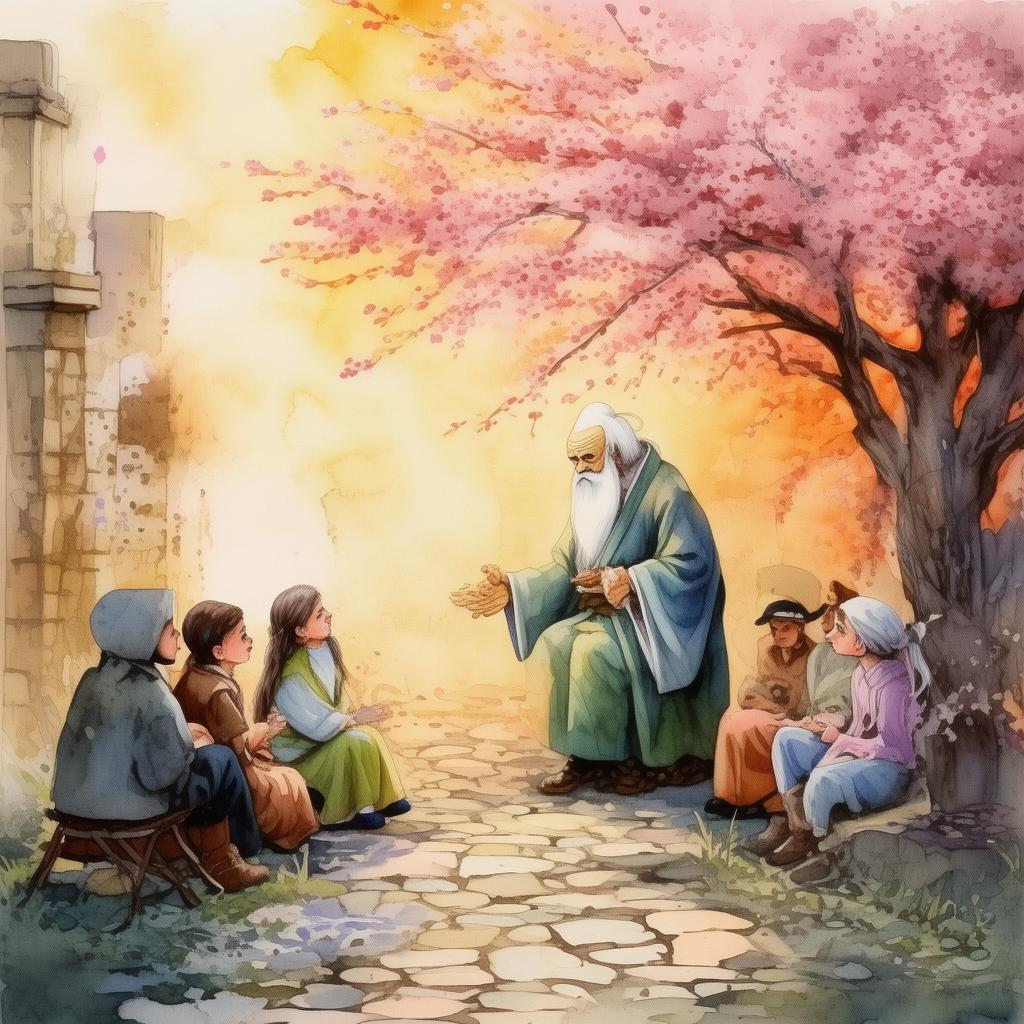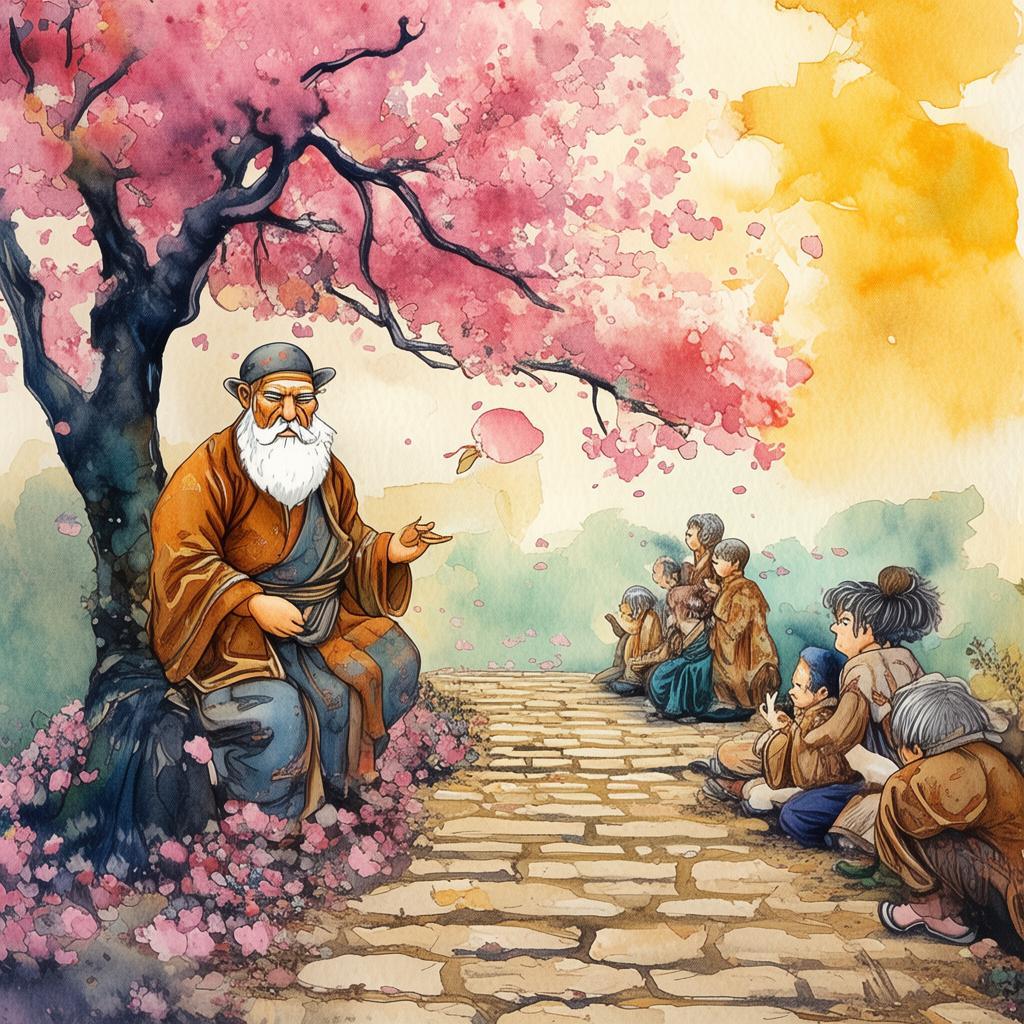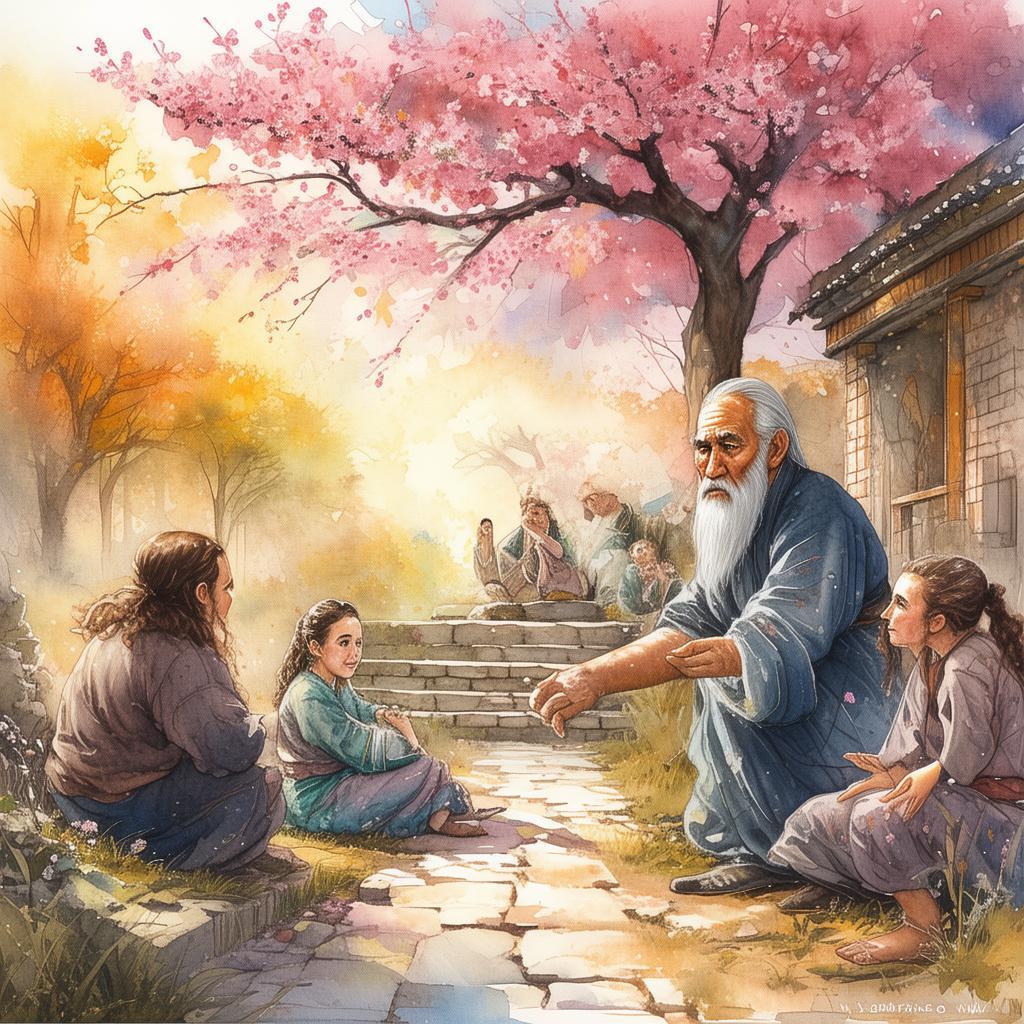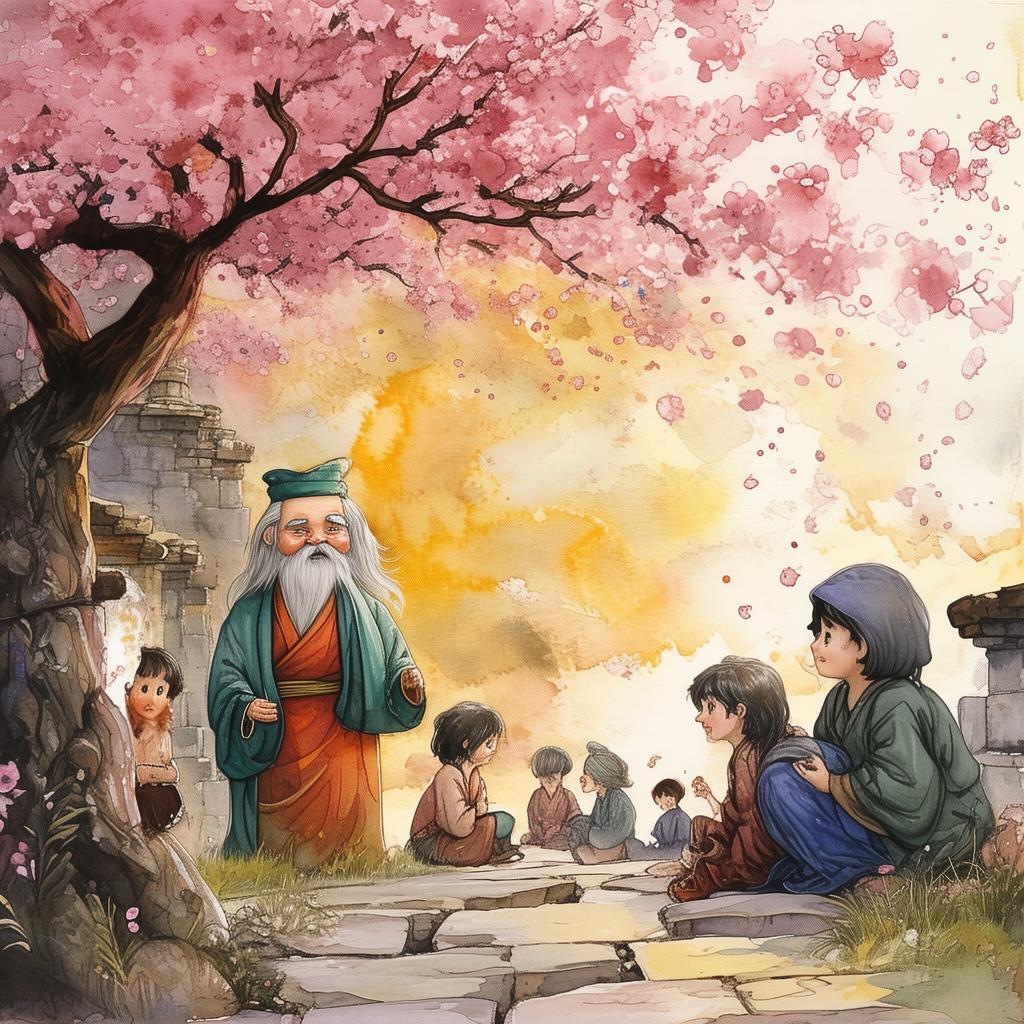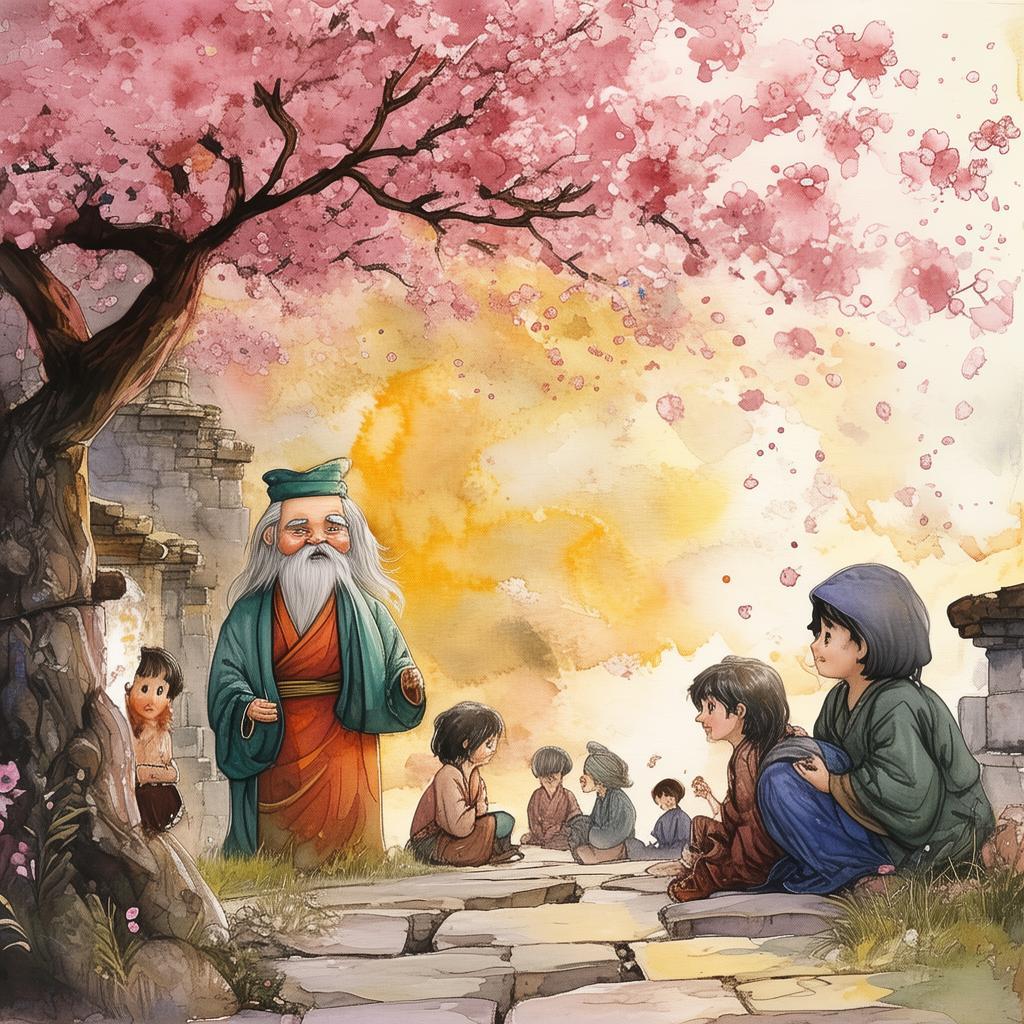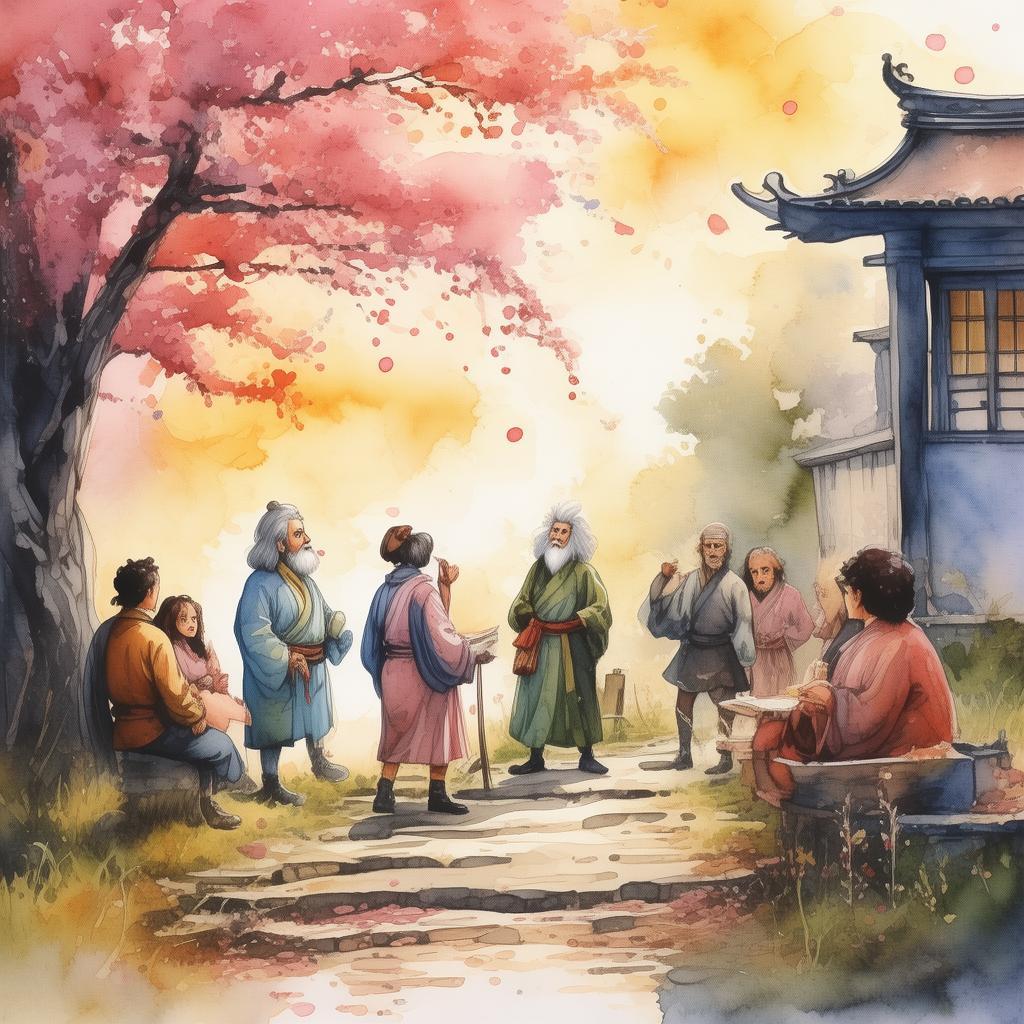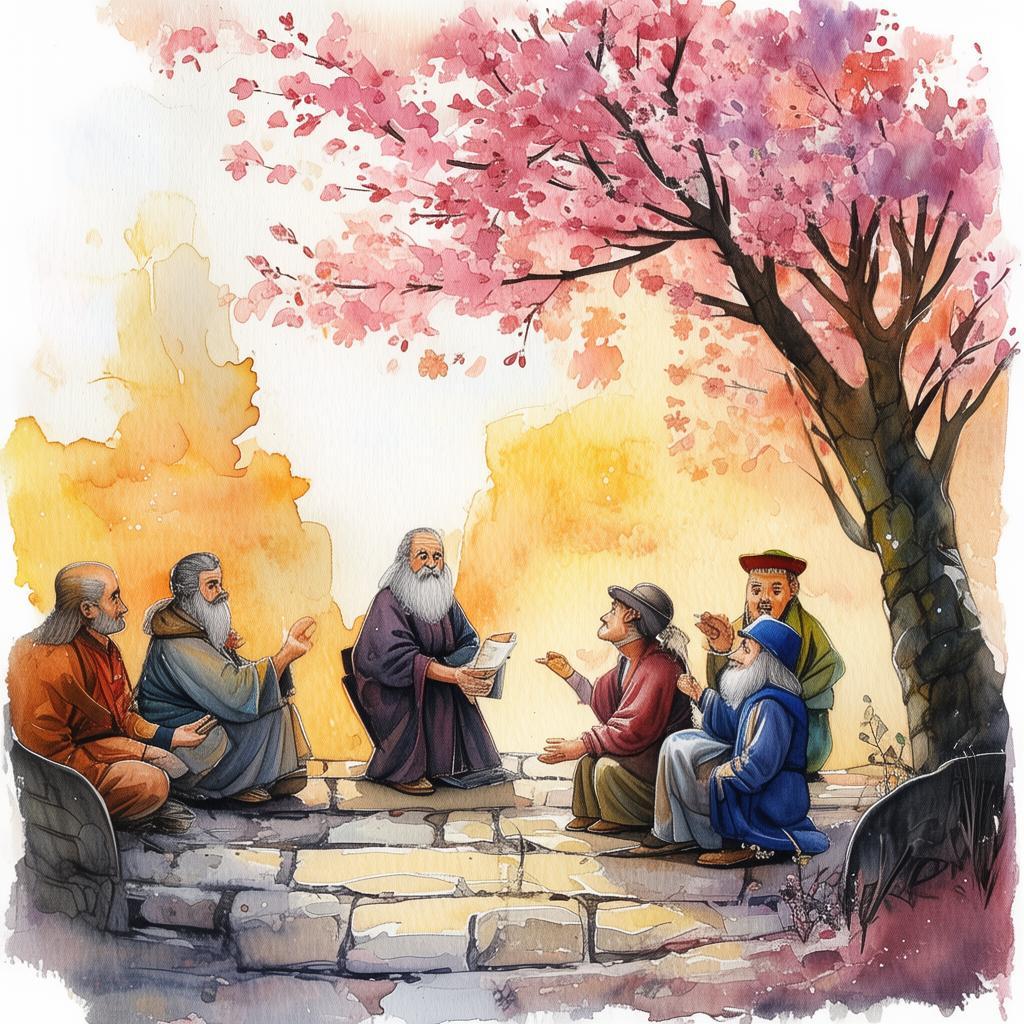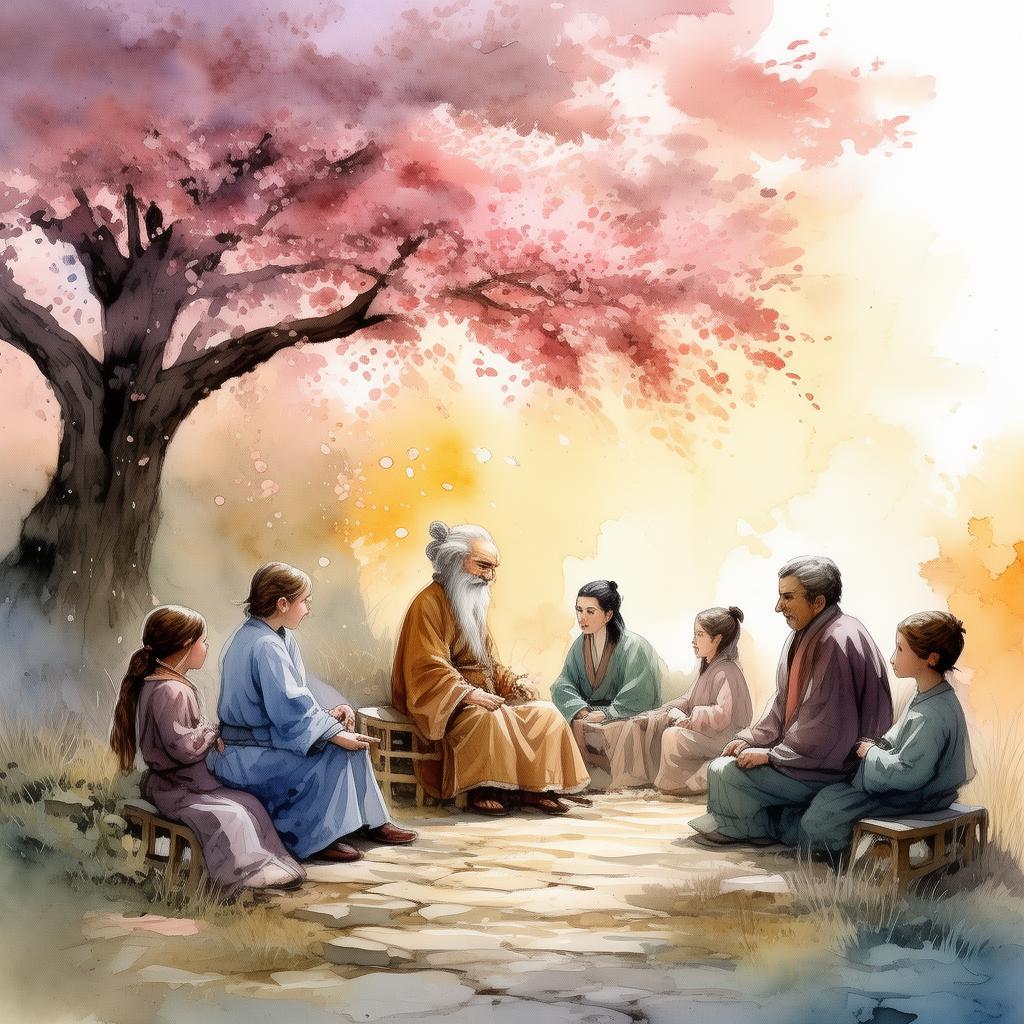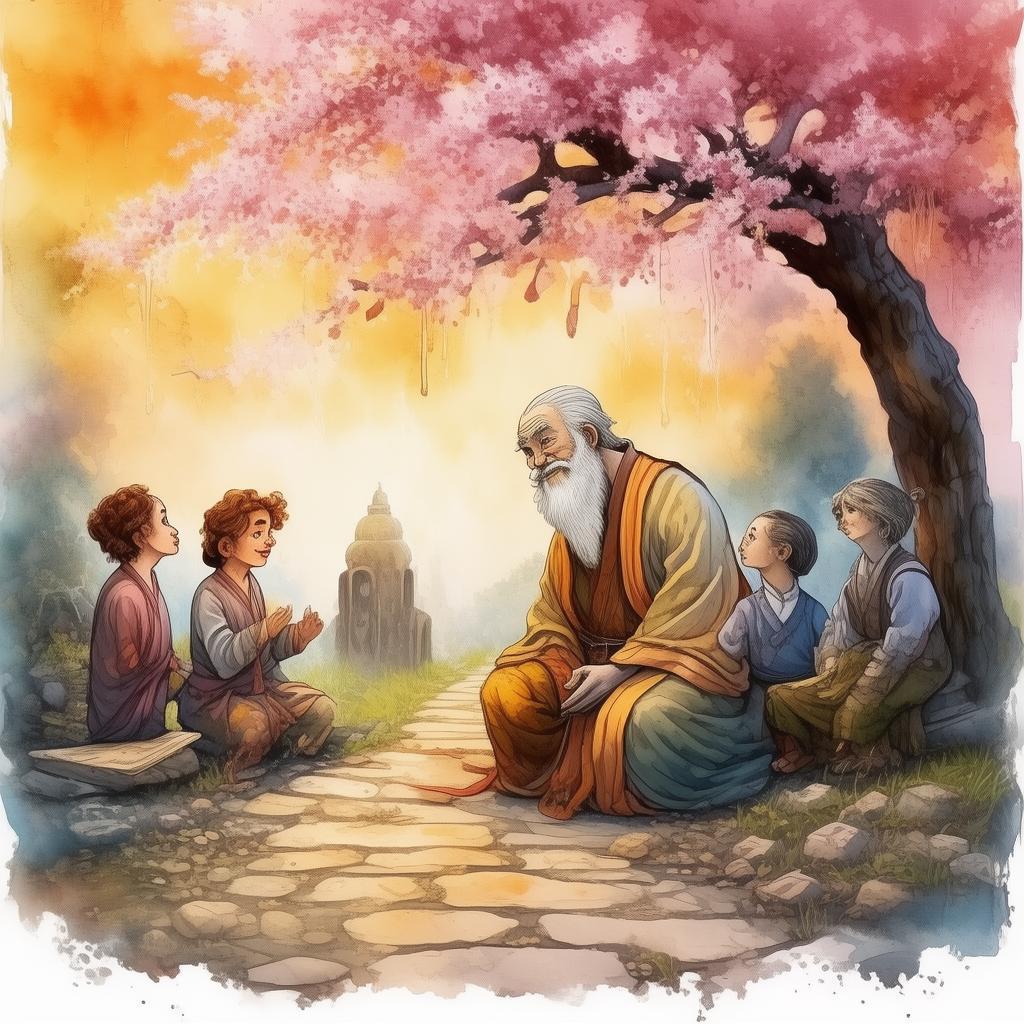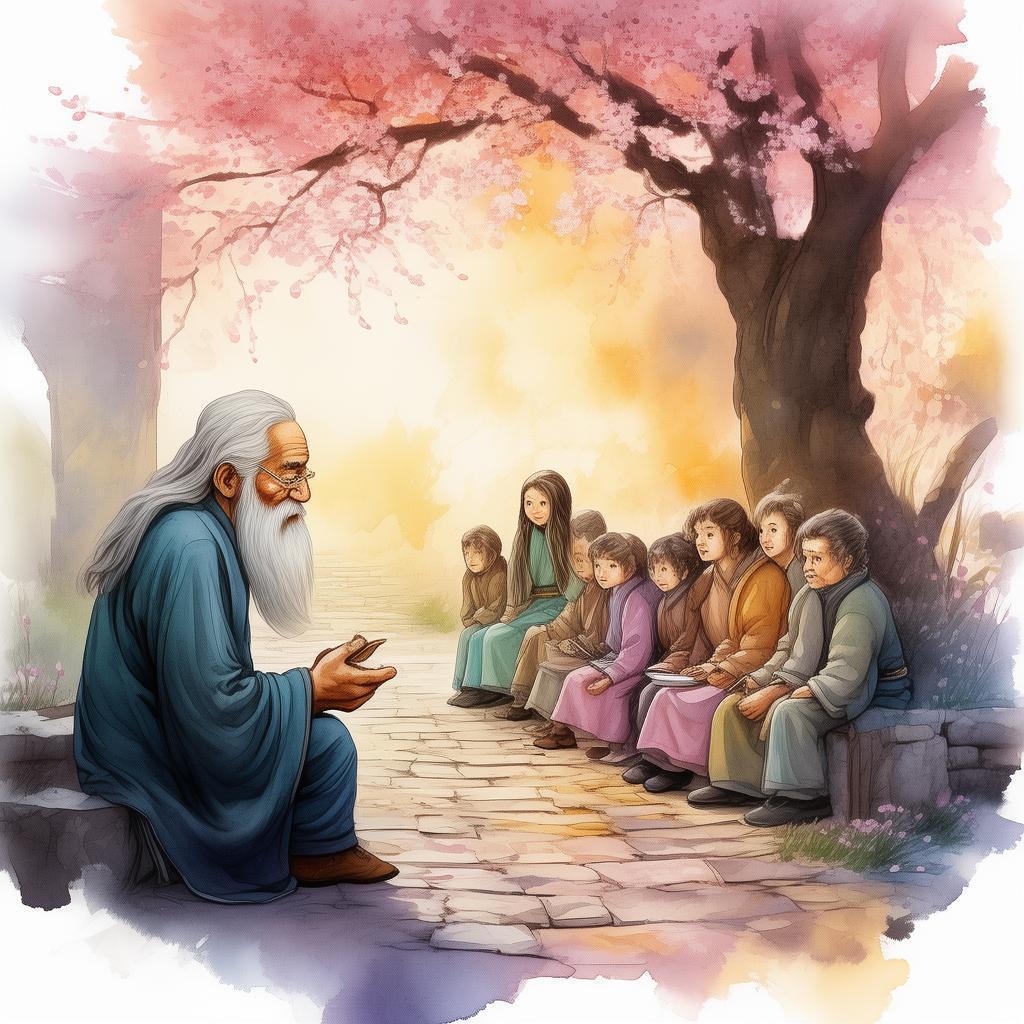Desert Harmony: The Camel's Quest for Unity
In the vast expanse of the desert, where the sun baked the earth and the winds carried tales of ancient civilizations, there roamed a camel named Aria. Aria was not just any camel; she was the heart of the Silk Road, a symbol of peace and cooperation. Her journey was not one of mere travel, but a quest to heal the rifts between the warring desert tribes that lay along the path of the fabled Silk Road.
The Silk Road, once a bustling highway of trade and culture, had fallen into disrepair. The once vibrant marketplaces were now silent, the caravans had stopped, and the tribes that once shared the road with harmony were now at each other's throats. It was a tale of greed and misunderstanding that had led to a standstill in the flow of goods and ideas.
Aria had heard the whispers of the desert winds. They carried tales of the old days, when the tribes worked together, trading spices, silks, and precious stones. She knew that the Silk Road could be reborn, but it required the hearts of the people to be aligned once more.
One day, as Aria set out on her journey, she encountered the first tribe, the nomadic Bedouins. They were fierce and proud, their leader, a man named Khaled, had become obsessed with the idea of controlling the Silk Road for his own gain. Aria approached him, her eyes filled with a gentle determination.
"Khaled, the Silk Road is not a path for one, but for many," Aria said, her voice steady and calm. "Unity brings prosperity, division brings ruin."
Khaled, a man of action and little patience, laughed. "Unity? You speak of unity, camel, but the desert knows no such thing. It is a place of survival of the fittest."
Aria did not respond with anger, but with a silent promise. She turned her back on the Bedouins and continued her journey, her camel's hooves leaving deep prints in the sand.
Days turned into weeks as Aria traveled through the desert, meeting various tribes. Each had their own grievances, their own reasons for wanting to control the Silk Road. Some were tribes of traders, others of warriors, but all were divided by the greed that had taken root in their hearts.
Aria listened to their stories, her heart heavy with the weight of their pain. She knew that she had to find a way to bridge the gap between them. She had to show them that the Silk Road was not just a place for trade, but a place for unity and friendship.
Finally, Aria arrived at the last tribe, the Berbers, who were known for their strength and resilience. Their leader, a woman named Aisha, was a warrior of great repute. Aria approached her with the same gentle determination she had shown to Khaled.
"Aisha, the Silk Road is a symbol of our shared heritage. It is time we put aside our differences and work together for the greater good," Aria said, her voice filled with hope.
Aisha, a woman of few words, studied Aria for a long moment. "You speak of unity, camel, but how can we trust one another when we have been at odds for so long?"
Aria did not hesitate. "Trust is built through action, not words. I ask you to join me in a march to the Silk Road's midpoint. There, we will gather all the tribes and show them that unity is possible."
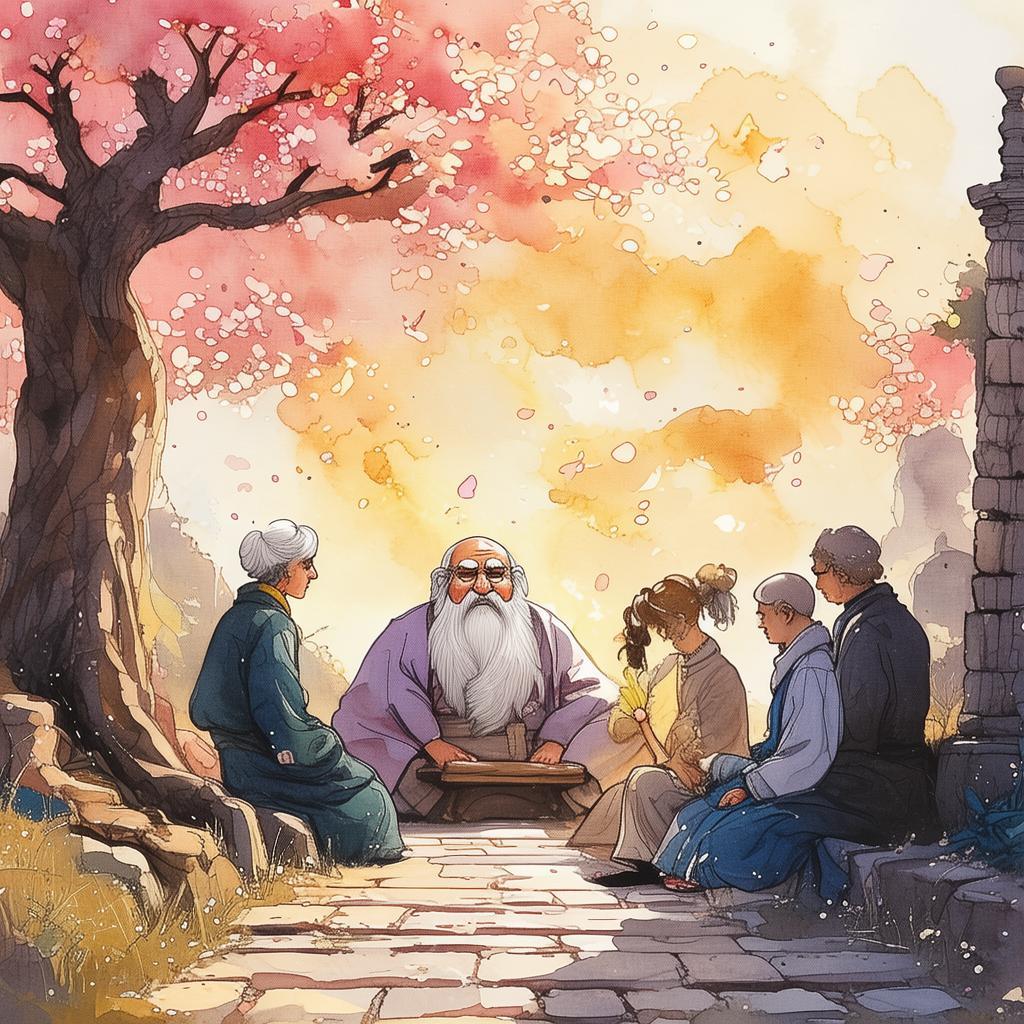
Aisha nodded, her decision made. "Very well, camel. I will march with you."
And so, Aria and Aisha set out together, leading their respective tribes. As they approached the midpoint, the other tribes followed, drawn by the promise of a new beginning.
At the midpoint, the tribes gathered, their flags fluttering in the wind. Aria stepped forward, her voice echoing across the desert.
"Today, we stand at the crossroads of our past and our future. Let us choose the path of unity and cooperation, for it is the only way to ensure that the Silk Road flourishes once more."
The tribes listened, their hearts touched by Aria's words. Slowly, they began to understand that the Silk Road was not just a path of trade, but a path of friendship and harmony.
The leader of the Bedouins, Khaled, stepped forward, his expression one of contemplation. "Aria, you have shown us the way. We will put aside our differences and work together."
The Berbers, led by Aisha, nodded in agreement. "The Silk Road is our heritage. It is time we honor it."
And so, the tribes of the desert came together, their hearts aligned. They began to rebuild the Silk Road, not as a path of control, but as a path of unity and cooperation.
Aria, the camel who had once roamed the desert alone, had become a symbol of hope and unity. Her journey had not been easy, but it had been worth it. The Silk Road had been reborn, and with it, a new era of peace and prosperity.
The story of Aria's journey spread like wildfire across the desert, a testament to the power of unity and cooperation. It was a tale that would be told for generations, a reminder that sometimes, all it takes is one heart to ignite a movement of peace.
✨ Original Statement ✨
All articles published on this website (including but not limited to text, images, videos, and other content) are original or authorized for reposting and are protected by relevant laws. Without the explicit written permission of this website, no individual or organization may copy, modify, repost, or use the content for commercial purposes.
If you need to quote or cooperate, please contact this site for authorization. We reserve the right to pursue legal responsibility for any unauthorized use.
Hereby declared.
